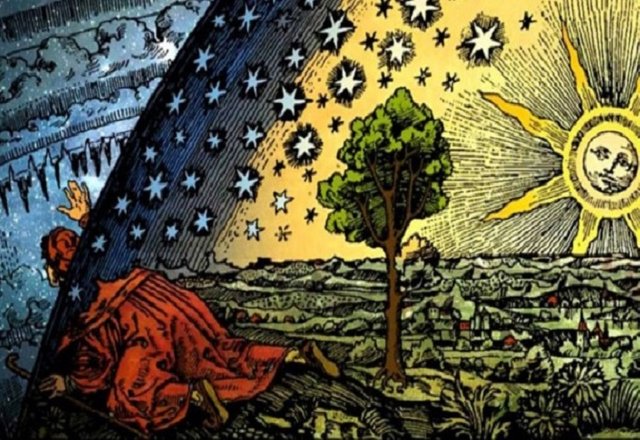Object and definition of Philosophy. Philosophy as metaphysics. /last part /
Goethe writes: "Do you want to enter the infinite, just go through the end in all directions." And this "walking" is done by the research of our mind, which is constantly and boldly going beyond all naive-realistic attempts and " positivism "to penetrate deeper into the essence of being. As for the Act of Three Steps on Human Development, created by the August Cont, he does not justify himself either historically or psychologically, or at last in his own life - biographical. Historically, it has not been justified because it has been centuries since the death of religion and metaphysics and its substitution from "positive" science have been proclaimed, and since then religion and metaphysics not only exist alongside science, but we even experience real revival and deep justification with the help of science itself.
Today, they are more vivid than a century ago.Psychologically, it is not justified because what is most often observed is that the individual, instead of moving from religion and metaphysics to positivism, moves in reverse. Metaphysics is an expression of the courage and uncompromisingness of the human spirit, of the depth and consistency of its questioning, openness and receptivity to the integrity and unity of the world, the taste and the sense of man's secret of being. Metaphysics, these are the last limits of human knowledge for any given time, where it borders upon the mystery. It is, at the same time, the eternal vigor and love of man in this secret, his listening and directing to the afterlife. And this love and listening at least do not have the character of pathological dreaminess and superficial poetic contemplation, but they are related to the most crucial and vital-practical interests, urgent, universal and tortuous. We are not only theoretical machines ready to wait until at the end of the centuries science has consistently and unambiguously achieved and communicated to us the last truth, but we are living living creatures who everywhere and at any given moment face questions such as: what is life and what is it for? What are the mental processes to the bodily, especially to the brains? Is there only one earthly existence or one that is beyond, as religion teaches?
Are the moral requirements placed upon us either objective or merely subjective? Is there reason and expedience in the world, or is it just a casual and pointless game and a combination of elements? Is there a vengeance for good and evil, or all struggles for ideals are a stupid nonsense? From how we now and here, each for ourselves, respond to these questions, depends our everyday behavior. It is known that there are thinkers and scientists who forbid science, human reason to ask questions about purpose and meaning, about the value of life, because it was not the subject of science. As a child, he is satisfied with the surrounding "positive" and does not embark on complicated problems, as a teenager and a mature man already encompasses a metaphysical fever and asks: "Why is this the order of the world, what does it mean, where it comes from and where everything goes, and so on. " When the culmination of his life passes and his powers fall away, then we see him humbly clear, reconciled with the truths of religion, and rarely knocking with the cloth on the paths to the church gates. At last, Augustus Kont with his life did not justify his law because he initially considered the source of knowledge only the sensory experience and the pure science as a positivist and an enemy of any metaphysics. In a later period of his life, however, he had embarked on true metaphysical generalizations and quests, though not very successful, until he finally ended his life in full religious mysticism when he created doctrines, churches, pseudo-deities, saints, and a complex cult of worship. Thus O. Kont himself proves that, as metaphysics is the everyday use of every person, his own antimetaphysical assertions do not have their justification as from one stage of development to another.

Man wants to find his place in the universe and still can't leave earth.
Beautiful
Posted using Partiko Android
You have recieved a free upvote from minnowpond, Send 0.1 -> 10 SBD with your post url as the memo to recieve an upvote from up to 100 accounts!